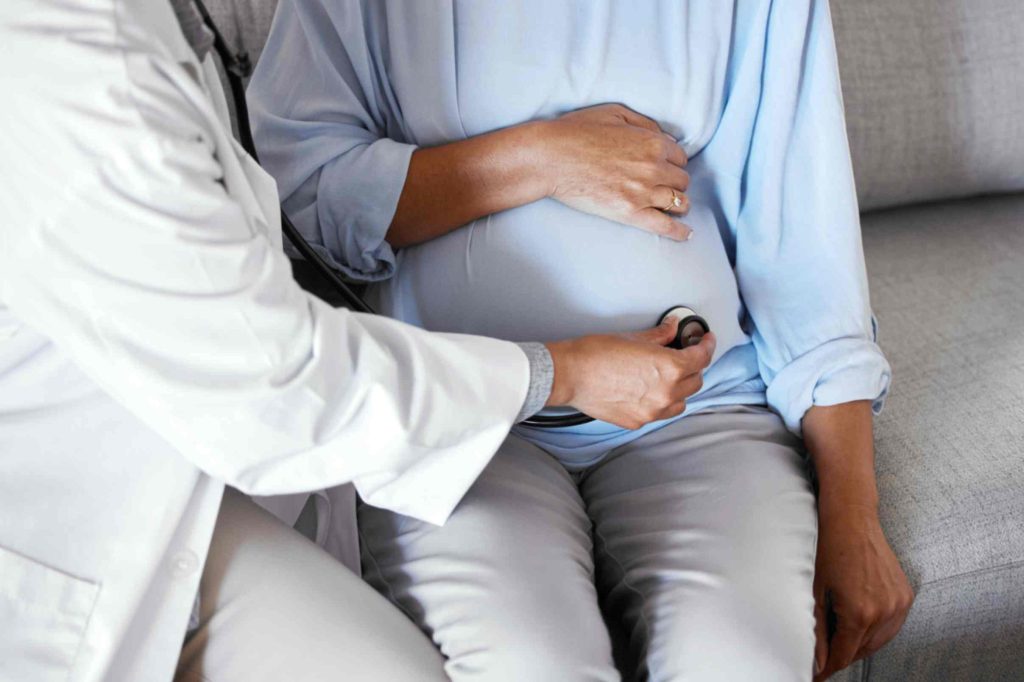
Pregnancy is a time of great excitement, but it also comes with many health considerations. One concern that may arise is shingles, a viral infection caused by the reactivation of the varicella-zoster virus (the same virus that causes chickenpox). For pregnant women, understanding the risks, symptoms, and treatment options for shingles is essential for ensuring both maternal and baby health.
Are Pregnant Women at Risk of Shingles?
Shingles is not as common during pregnancy as it is in older adults, but it can still occur. While the risk of developing shingles during pregnancy is low, it is important to be aware of its potential effects. Most cases of shingles during pregnancy do not harm the baby because the virus doesn’t spread from person to person.
However, if a pregnant woman has never had chickenpox or the chickenpox vaccine and is exposed to someone with shingles, there may be a risk of developing chickenpox, which can pose a greater threat during pregnancy.
Shingles and Pregnancy Risk: Is It Dangerous for the Baby?
The good news is that shingles itself is unlikely to directly harm your baby. However, complications from shingles could have indirect effects. For instance, a pregnant woman with shingles might experience severe pain and discomfort, which could lead to stress. Rarely, complications such as pneumonia or other secondary infections can arise if left untreated.
If you are pregnant and have never had chickenpox, it’s essential to discuss your situation with experts if you suspect exposure to the virus. They may recommend treatments to reduce the risk of complications for both you and your baby.
What are the Symptoms of Shingles?
The early signs of shingles can be mistaken for other illnesses. Symptoms typically include:
- Tingling or burning sensation: This may occur before any rash appears.
- Pain: Shingles pain is often described as sharp or stabbing, and it can be quite severe.
- Rash: A red rash usually develops within a few days of the initial pain. It appears on one side of the body or face and forms small, fluid-filled blisters.
- Itching: The rash may itch, adding to the discomfort.
- Fatigue and fever: Feeling tired or having a mild fever is common.
Shingles and Pregnancy Treatment: What Are Your Options?
Treatment for shingles during pregnancy focuses on managing symptoms and preventing complications. The earlier the treatment begins, the better the outcomes. Here are some of the common treatments:
- Antiviral medications: Antivirals such as acyclovir or valacyclovir may be prescribed to reduce the severity of shingles and speed up recovery. These are generally considered safe during pregnancy but should only be taken under medical supervision.
- Pain relief: Paracetamol is often recommended for managing pain. Avoid using over-the-counter painkillers without consulting an expert.
- Topical creams: Calamine lotion or cool compresses can soothe itching and reduce irritation.
- Rest and hydration: Adequate rest and staying hydrated are vital for recovery.
How to Reduce the Risk of Shingles During Pregnancy
While there’s no guaranteed way to prevent shingles, you can take precautions:
1. Stay away from sick individuals: Avoid contact with anyone who has chickenpox or an active shingles rash, especially if you haven’t had chickenpox before.
2. Boost your immune system: Eating a healthy diet, exercising, and managing stress can help maintain a strong immune system.
3. Vaccination: The shingles vaccine is not recommended during pregnancy, but it can be considered before planning a pregnancy if you’re in the at-risk age group.
Don’t Let Shingles Slow You Down!
If you’re living in Slough or nearby areas like Taplow and suspect shingles, Aroga Pharmacy in Farnham Common is here to help. Book an appointment today to get expert advice and safe treatment options for shingles and other health concerns. Our caring team is dedicated to ensuring the health and safety of both you and your baby during pregnancy.
